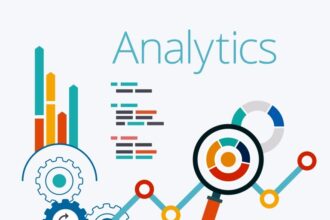 With the amount of data processed by enterprises seeing an exponential growth over the past decade or two, the need to handle big data has been higher than ever. Financial transactions and business communication are the biggest applications driving this need to handle big data in enterprises. Given this proliferation of data, one may have expected big corporations to have invested heavily in managing this new asset.
With the amount of data processed by enterprises seeing an exponential growth over the past decade or two, the need to handle big data has been higher than ever. Financial transactions and business communication are the biggest applications driving this need to handle big data in enterprises. Given this proliferation of data, one may have expected big corporations to have invested heavily in managing this new asset.
 With the amount of data processed by enterprises seeing an exponential growth over the past decade or two, the need to handle big data has been higher than ever. Financial transactions and business communication are the biggest applications driving this need to handle big data in enterprises. Given this proliferation of data, one may have expected big corporations to have invested heavily in managing this new asset. However, that does not appear to be the case.
With the amount of data processed by enterprises seeing an exponential growth over the past decade or two, the need to handle big data has been higher than ever. Financial transactions and business communication are the biggest applications driving this need to handle big data in enterprises. Given this proliferation of data, one may have expected big corporations to have invested heavily in managing this new asset. However, that does not appear to be the case.
A survey report published by Information Week last year threw some pretty interesting statistics relating to the strategy deployed by a number of North American businesses towards big data. According to this report, only 18% of the surveyed companies had specific strategies to deal with big data in the first place. Not surprisingly, 87% of the respondents noted that their organizations did not handle big data separately and instead used conventional databases. It then makes sense when the report concluded that 44% of influencers in the company are not even aware of tools to handle big data.
That is a shame because the tools necessary for this are already available with most businesses. According to the Association for Information and Image Management (AIIM), one in two businesses today have Microsoft Sharepoint Server installed in their premises. The latest version of this collaboration tool, the MS SharePoint 2013, is equipped with some exhaustive tools to help handle big data. With the right level of awareness, these 44% of businesses may have ensured an efficient and productive handling of big data at their premises.
The challenges do not stop there. Most businesses consider IT implementations as a one-time activity and do not bother keeping up with the latest upgrades that, besides making efficient improvements, also bring with them better features. The AIIM report, published in 2012, found that close to 27% of businesses still used SharePoint 2007 or SharePoint 2003 – software that is sometimes a decade old and has hence seen upgrades more than a couple of times since then. What this means is that these businesses, despite paying for a software that offers exhaustive big data management tools, are not availing these benefits because they are yet to migrate from SharePoint 2007 to 2013 which has all the requisite big data management tools.
SharePoint is without doubt the best collaborative tool for businesses today. The latest 2013 version of the software is built on the Vertipaq engine and is integrated with the “PowerPivot technology”. Thanks to these enhancements, SharePoint 2013 is capable of handling much larger data sets than the earlier versions can. In addition to this, the updated Power View data modeling and visualization tools for Excel help with translating this big data into interactive visual graphs and charts that can be used for better interpretation of information.
While SharePoint is not the only option available for big data in the collaborative work space, it it true that competition is yet to build their products to give Microsoft a run for their money. If your business does not run SharePoint, one alternative to look at is Alfresco which is an open source SharePoint 2013 alternative. However, this software is not expected to include big data management tools until next year. If you are using other collaboration tools that do not contain big data management, it is recommended that you look at Hadoopas a stand-alone product for big data management. This way, you can have the best tools for your business for collaboration as well as big data management.
image: binary eye/shutterstock







